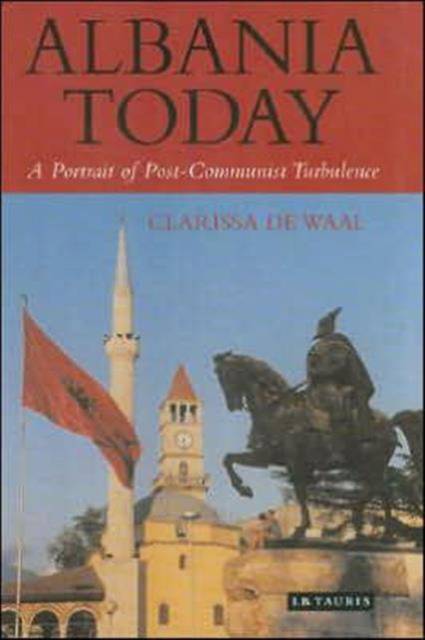
- Afhalen na 1 uur in een winkel met voorraad
- Gratis thuislevering in België vanaf € 30
- Ruim aanbod met 7 miljoen producten
- Afhalen na 1 uur in een winkel met voorraad
- Gratis thuislevering in België vanaf € 30
- Ruim aanbod met 7 miljoen producten
Omschrijving
Clarissa de Waal's new book explains Albania's 'transition' from Communism via the experiences of a diverse range of families, highland villagers, urban elite and shanty dwellers - whose lives she has followed since 1992. As such, this is a history - of economic, social and political change - told from the perspective of the participants. We see how far the archaic world of customary law continues to pervade highland life, from dispute settlement to arranged marriages. At the same time, the author shows us members of the ex-communist elite in Tirana embracing rentier capitalism, while squatters on state farmland live under constant threat of eviction. Albania, the author suggests, is a country wracked by contradictions. Clarissa de Waal's new book will inform and engage all those interested in Albania and southeast Europe. Catapulted from totalitarianism to free market capitalism in 1991, Albania emerged from half a century of isolation to find itself an anomaly in Europe: a third world country economically and infra-structurally, first world in terms of education, literature and the arts.
This portrait of Albania's 'transition' is based on the experiences of a diverse range of families - highland villagers, urban elite, shanty dwellers - whose lives the anthropologist author has followed closely since 1992. Village life is conveyed in vivid detail. The villagers deal with the grinding poverty of village life with humour, charm and reslience. Rural life, despite concerted attempts by the communist regime to eradicate 'backwardness', is still pervaded by the archaic world of customary law, a system whose influence spans dispute settlement, forest rights, marriage arrangement and blood-feuds. In the capital, Tirana, members of the former communist elite are courted by innumerable missionary groups and foreign 'experts'. These groups, with the means and the connections to do so, are seen to be uninhibitedly embracing rentier capitalism. Meanwhile, highland villagers with no means of subsistence after the closure of state enterprises, have descended to squat on undistributed state farmland, there to live under constant threat of eviction.
Mass unemployment, widespread lawlessness and government laissez-faire have led to a scale of emigration unparalleled elsewhere in former communist Europe. The shock of nation-wide revolt in 1997 triggered alarm and international intervention. But new reforms were followed all too quickly by a reversion to government laissez-faire and unchecked corruption. Clarissa de Waal's new book is a history of economic, political and social transition based on the author's anthropological research. As such the reader sees the fundamental changes taking place in Albania from the perspective of the participants. Entertaining as well as informative, "Albania Today" will engage not just those interested in Albania and southeast Europe, but equally anyone with an interest in the impact on individuals and families of the economic and political transition.
Specificaties
Betrokkenen
- Auteur(s):
- Uitgeverij:
Inhoud
- Aantal bladzijden:
- 280
- Taal:
- Engels
Eigenschappen
- Productcode (EAN):
- 9781850438595
- Verschijningsdatum:
- 1/09/2005
- Uitvoering:
- Hardcover
- Formaat:
- Genaaid
- Afmetingen:
- 151 mm x 220 mm
- Gewicht:
- 494 g

Alleen bij Standaard Boekhandel
Beoordelingen
We publiceren alleen reviews die voldoen aan de voorwaarden voor reviews. Bekijk onze voorwaarden voor reviews.











